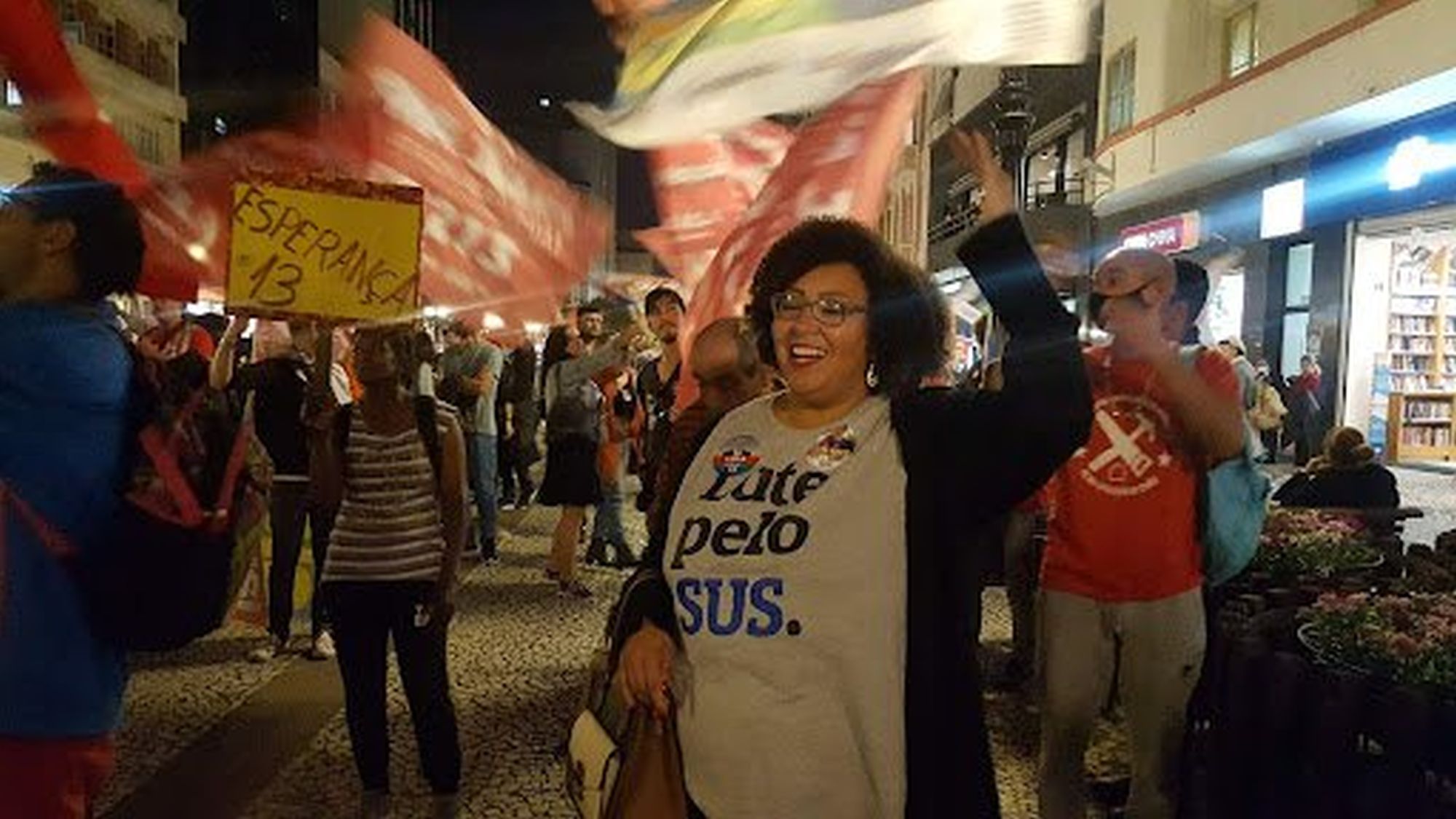Juliana Mittelbach, a 40-year-old hospital nurse from the city of Curitiba, Brazil, had long considered a career in politics until the COVID-19 crisis forced a decision. She had noticed it was “mostly Black people” who died. “They were the ones who came to the hospital in the worst condition or when it was already too late,” she said.
Mittelbach came to the harsh realization that Brazil’s right-wing policies had severely affected her community. “It was a call to action that pushed me to launch my candidacy,” she says.
She is running for the legislative assembly of the southern Brazil state of Paraná as a candidate of the Workers’ Party. If she won, she would be Paraná’s first Black female lawmaker.
Mittelbach is one of 4,829 women who identify as Black and are running in next month’s general election (out of 26,778 candidates). It is a record number, a nearly 27% increase on the 2018 election.
Women are 51% of the population, but only 34% of the candidates running this year. Black women, meanwhile, are 28% of the Brazilian population, but only 18% of the candidates.
This surge in Black female candidacies is largely because of the Black feminist movement, which has not only advocated for more political representation, but has also provided support, mentoring and training to Black female politicians, says Roberta Eugenio, co-director of the Alziras Institute, which trains Black women politicians.
Mandatory quotas, under which at least 30% of the candidates should be female, have helped. However, Eugenio warns that simply being fielded as a candidate is not enough; political parties need to invest in their training and visibility. So far, “we haven’t seen the kind of proportional investment in Black women that can make their candidacies really competitive,” she says.
Political campaigns are costly and Black women usually come from poorer backgrounds, which puts them at a disadvantage from the outset. “The funding I receive from the party is low and it makes it hard for me to organize and take part in many events,” Mittelbach said. “And with the 22 seconds of radio and television time I get, I can hardly introduce my program, let alone talk about issues of gender, race and class.”
Brazil is a diverse country but Congress does not reflect the population. Government data shows that Black and mixed-race people make up nearly 55% of the population, but less than a quarter of the lower house of Congress is Black or mixed race and only about 15% of members of the lower house are women.
Since 2020, Brazil’s political parties have been required by law to apportion public funding and airtime fairly to the election campaigns of candidates of all genders and races (if a certain percentage of candidates are Black, then Black candidates must receive that same percentage of funding, TV and radio).
But only a few parties complied in the 2020 municipal election, when voters picked mayors and councilors in more than 5,000 cities across the country, and an amnesty was granted to those that transgressed.
In practice, parties invest in already-experienced politicians, and these are disproportionately white men. The law doesn’t make any special provisions for Black women, and Eugenio thinks this makes political parties complicit in “maintaining inequalities, ignoring intersectionality and marginalizing Black women in terms of political representation.”
Robeyoncé Lima, a Black trans woman who is running for Congress from the north-eastern state of Pernambuco, knows how hard it is to break the mould. She is fighting her second election campaign as a Socialism and Liberty Party candidate and is convinced that women like her stay away from politics out of fear of violence. “We are visible and we are fighting for spaces of power, which bothers many people from the old school of politics,” Lima says.
Political parties that field Black female and LGBTQI+ candidates should invest in their physical and emotional safety both while on the campaign trail and when they are in office, she adds. “To do politics, we need to stay alive,” Lima said.
There are also plans to tweak electoral law to give parties a greater share of public funding based on the number of votes their Black and female candidates receive.
Lima has set up an informal peer support network for candidates like her but says it offers only limited protection. “We need support from political parties and society as a whole,” she says.
Mittelbach too says she relies on the team of volunteers who help with fundraising, logistics and communications. Non-governmental organizations such as Instituto Marielle Franco and Mulheres Negras Decidem helped devise and launch her campaign.
But for the most part, Black women’s campaigns remain cash-strapped and with limited capacity. In 2020, they relied on virtual crowdfunding, mostly from Black communities in the poorer parts of Brazil.
Now, Black women candidates are focusing on social media to compensate for their limited mainstream media access and exposure. Lima’s social media campaign, for instance, is mainly on Instagram – but the flipside is that it has become one of the top ten in the electoral race in the country.
“There are barriers, but nothing is impossible,” says Lima.
Bruna Pereira is a feminist anti-racist activist and a founding member of the Feminists for Rights, Equality and Empowerment (FREE) Network. As a sociologist, she has promoted intersectional analyses of gender and race. She is the founder and coordinator of Black Women’s Study Group at the University of Brasilia, Brazil.
Macarena Aguilar is a feminist and women´s rights advocate. She worked for the Association of Women´s Rights in Development (AWID) as Interim Director of Communications and Senior Online Communications Manager. She is the co-founder of Small World Stories and their Digital and Business Development Director.
This article appeared originally in Open Democracy – https://www.opendemocracy.net/





